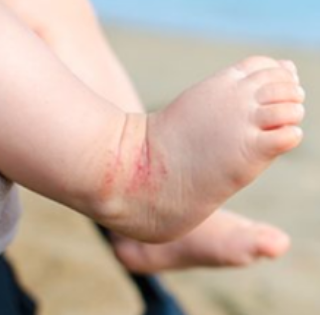
26 Apr Eczema: what you need to know
What is eczema?
Eczema (also known as atopic dermatitis) is a recurring, non-infectious, inflammatory skin condition that affects one in three Australasians at some stage throughout their lives.
The condition is most common in people with a family history of an atopic disorder, including asthma or hay fever.
It usually appears in early childhood and disappears around six years of age. Most children grow out of the condition, but a small percentage may experience severe eczema into adulthood.
What are the symptoms of eczema?
Common symptoms of eczema include:
- red, dry, itchy skin
- watery fluid weeping from affected skin
- red and scaly areas on the backs of the knees and elbows
- lesions that may become infected by viruses or disease-causing bacteria.
What causes eczema?
The precise cause of eczema is unknown but it is believed that a combination of genetic and environmental factors can trigger the skin condition. It is not contagious.
Factors that may cause eczema include:
- a family history of eczema, asthma or hay fever – if both parents have eczema, there is an 80% chance that their children will also develop eczema
- low immune function
- sensitivity to certain foods, including eggs, dairy products, citrus fruits and food additives
- emotional stress
- temperature changes
- inhaling allergens.
How can you manage eczema?
Identify and avoid triggers
Eczema may be triggered by certain clothing, changes in temperature, sweating, soaps, excessive washing of the skin, and particular foods.
Improve skin barrier function
Replace standard soap with a substitute such as a mild soap-free cleanser and protect your skin with moisturiser, avoiding perfumed products.
Reduce bacteria and control infection
A high percentage of people with eczema carry bacteria that can lead to secondary infections. Treatment of secondary infections and measures to reduce certain bacteria on the skin may improve eczema control. Bleach baths are an effective method for reducing bacteria loads on the skin and may be used by your dermatologist as part of your management plan.
Develop a treatment plan with your dermatologist
Your dermatologist will work with you on an individualised plan, and may prescribe treatments including topical steroids, anti-inflammatory creams, antibiotics or antihistamines.


